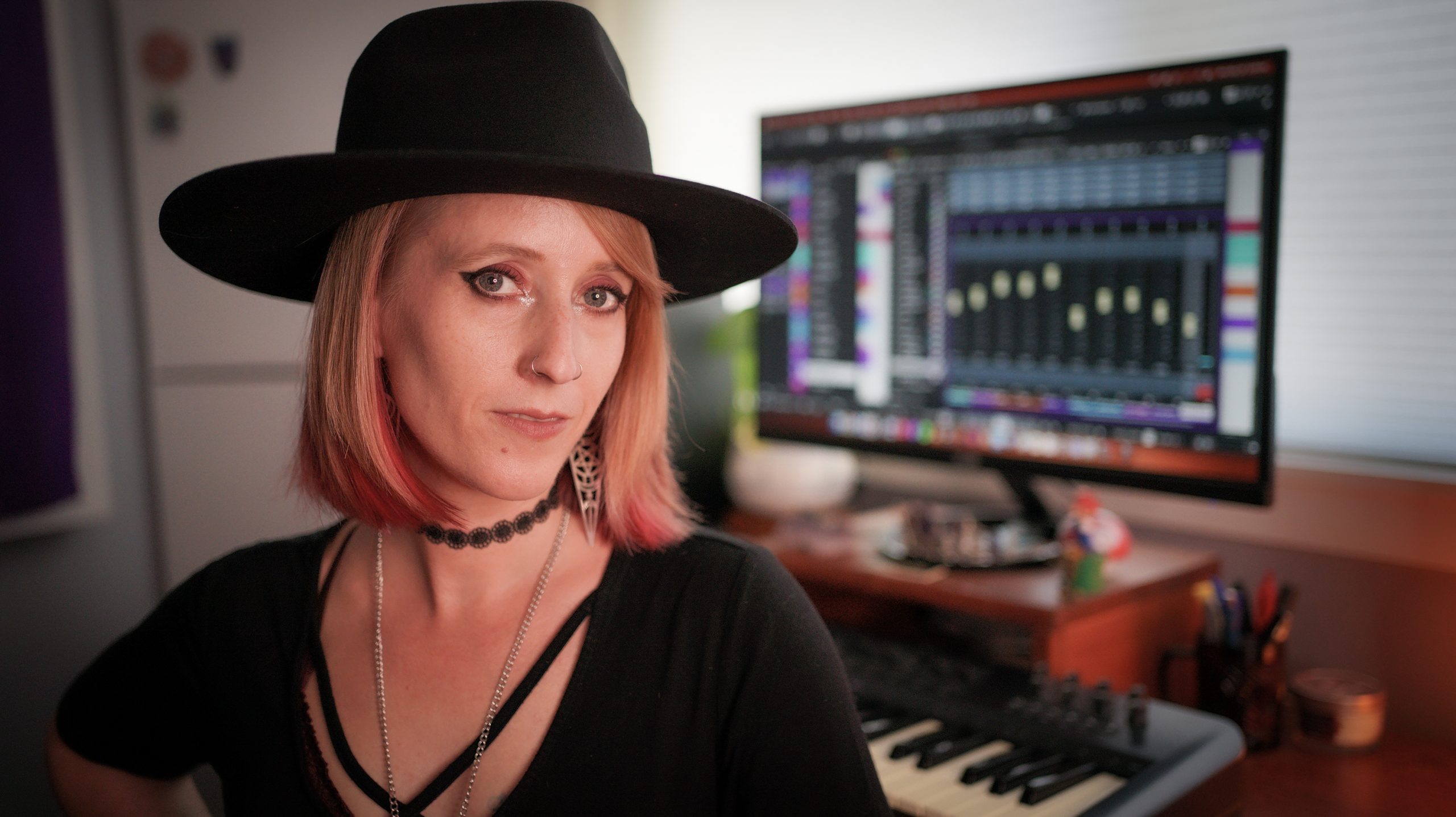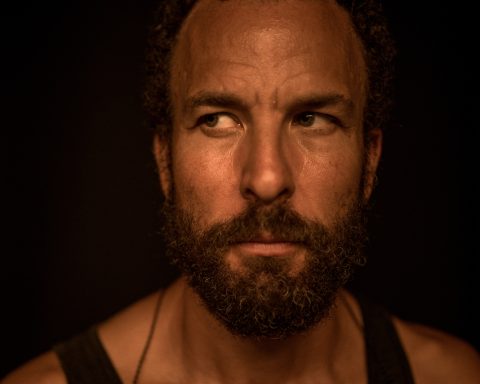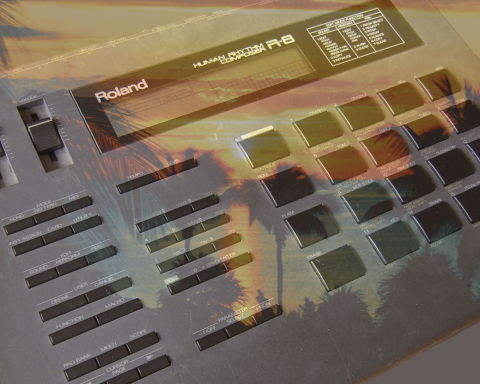Megan McDuffee had a deep-seated desire to work in film and TV composition. By her mid-’20s, she’d networked into film scoring, with credits including Annihilation and The Predator trailers. Soon, McDuffee’s blend of rock, pop, jazz, and electronic styles saw the gaming industry flocking to her gritty, melodic sound. Her transition into game scoring began with the multiplatform Mimic: Arena in 2016. McDuffee’s work has since appeared in the River City Girls franchise, Apex Legends Mobile, and the Centipede, Asteroids, and Breakout revamps for iconic developer Atari.
Learning the Craft
Where did your desire to venture into film, TV, and video game scoring come from?
It was never in question that I was born to be a musician, but writing and producing for film and TV just felt right. I knew I had to make it work come hell or high water. So when I was 19, I consciously decided to switch from a vocal to film scoring major. But scoring for video games came about organically when I was networking and hustling for work.
Is studying music theory helpful for making game music?
Studying music theory gave me a bigger toolkit and confidence in my ability to wrap my head around certain things I wanted to accomplish. When I analyze a client’s film score, game soundtrack, or reference track, I can understand and pursue it. I can confidently say that without it, I would not be able to understand orchestration, arrangement, or make a MIDI mock-up for a game or film.
“It’s essential to have a drive and passion for the art you’re creating, so I think you need to have a love for video games if you want to pursue that career.”
Enter the Arena
What were your first experiments in making game music?
My first game project arrived after attending the GDC (Game Developer’s Conference), which they hold every year in San Francisco. I talked to an independent game developer working on his first large-scale project. We kept in touch, and I got brought in after making that random connection. The game was Mimic: Arena, which is still on Steam.
They gave me a bit of the concept and told me each slice of music had to work as a loop within itself and with any other snippets I’d created. Everything had to be at the same tempo, and they would randomly generate whatever slice of music was playing at any given time. It was a cool, non-linear way of thinking about writing for games.
Do you have to enjoy gaming to write for games?
It’s essential to have a drive and passion for the art you’re creating, so I think you need to have a love for video games if you want to pursue that career. Actually, I was a little bit late to playing video games. I didn’t have a console until middle school when my dad brought home a Nintendo 64. From then, I was absolutely hooked, and the platform is well-loved for a reason.
"I have access Roland Cloud and sprinkle a lot of that on my work. Whenever a soundtrack calls for something very ’80s, I’ll whip out my JUNO-6."
In the Studio
Do you use the same tools, whether writing for games or other audio media industry sectors?
I pretty much use the same tools I always have. It’s a very home-based studio, and I do everything in the box using Cubase and a slew of my favorite plugins. I have access to all of the Roland Cloud digital stuff and tend to sprinkle a lot of that on my work. Whenever a soundtrack calls for something very ’80s, I’ll whip out my JUNO-6. I also like to play with my JV-1010, a little synth module rack unit with some really interesting retro-sounding things.
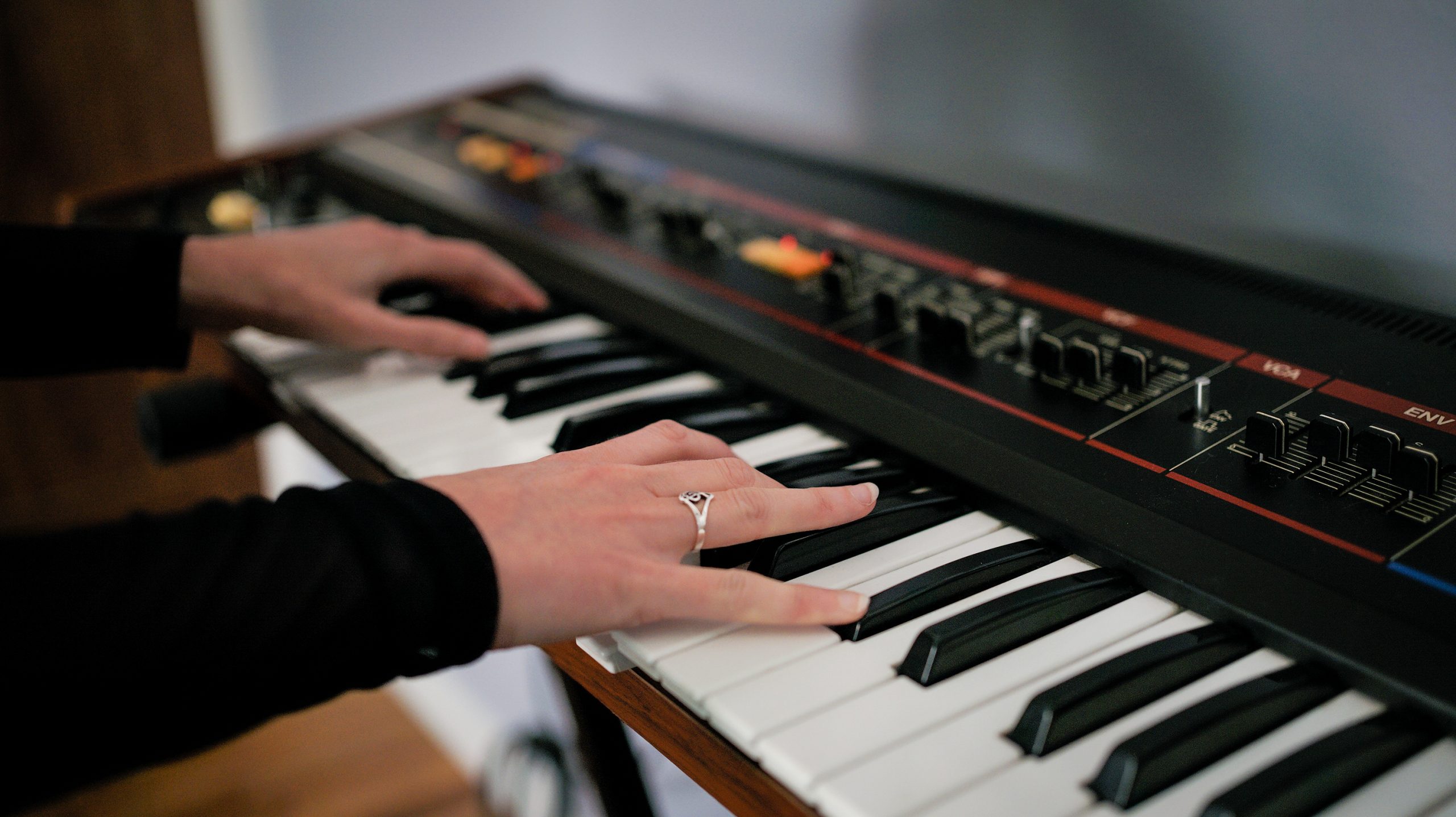
Once you’ve accepted an assignment, how do you typically begin laying down a score?
It’s slightly different depending on when a team brings me into the development process. In more cases than not, I’m brought in early and can access artwork, screenshots, snippets of gameplay, or descriptions of an area or a feel for what they want. I usually ask for reference music because one person’s dark and moody can be entirely different from my interpretation. I look to absorb everything they give me. If that includes reference music, I can start to break down the instrumentation, tone, and tempo they’re looking for and go for it.
“Melodies are what attracted me to music initially, and I feel that I can pull in those thematic elements more readily when writing for games.”
Does game music intend to blend in rather than sit at the forefront of the user experience?
Film music is more of an enhancement that washes over you in the background. But with games, I love that somebody might spend a very long time with a piece of music. A player could be in an area of gameplay for hours. It’s beneficial to compose with the mindset that the gamer is more likely to get drawn in by the music you’re writing.
I do miss the era of very good movie themes, though. That trend from the ’70s and ’80s shifted towards sound design-driven cues and textural elements. Hopefully, we’re due to come back to those thematic moments because melodies attracted me to music initially. I feel I can pull in those thematic elements more readily when writing for games.
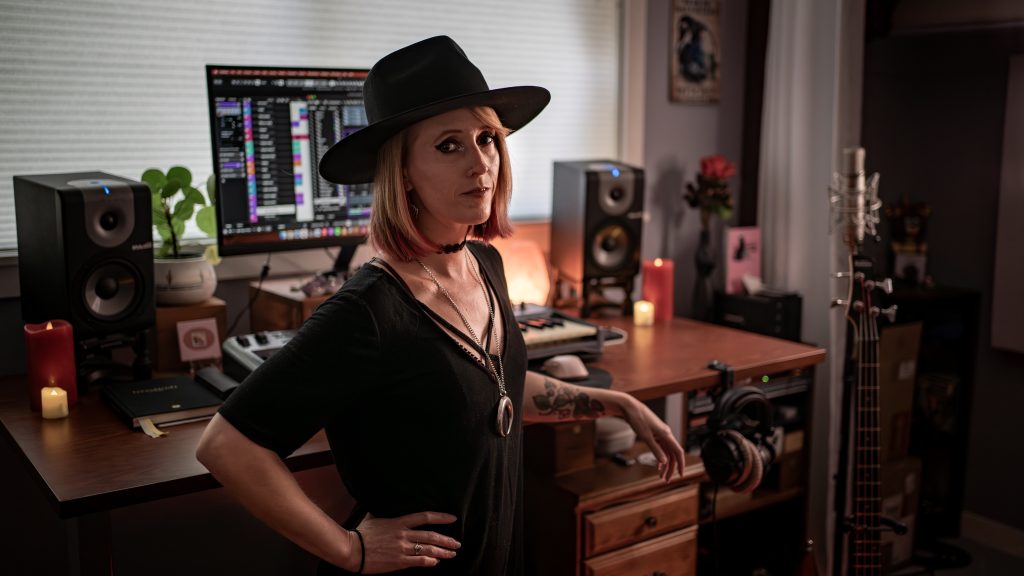
Breaking into Game Scoring
What advice would you give to someone wanting to carve out a career composing for games?
The number one thing that I tell people is to network your butt off. You want to find out where game developers go and then go to those places. The GDC is my number one event for networking, and I’ve also been to the PAX Expo. But local game jams or university game development programs are good starting points too.
Obviously, you need to hone your craft, practice your skills and get your work to a competitive commercial level. But the main thing is to talk to people and cultivate relationships. It takes a very long time to build that up, but it’s never too early to start, and that’s what will get you the work. So tell everyone you know you’re a video game composer, and let that shine in every conversation when you can work it in.
Favorite Scores
What are some of your favorite scores you’ve composed?
My scores for River City Girls and River City Girls 2 are my absolute favorites because I had so much fun creating them, and people had so much fun listening. I didn’t know the series had such a huge legacy from the Super Nintendo days. So when it came around, there was already a built-in fan base, which made it so much cooler. I had to write 60 pieces of music for River City Girls, which was a huge undertaking, but the whole experience has been a giant love bubble. I’ve also done nine games for Atari, which keep reimagining their classic titles and bringing me back in to make tunes for them.
"I didn’t know River City Girls had a huge legacy from the Super Nintendo days. So when it came around, there was already a built-in fan base, which made it so much cooler."
AI Opinions
Do you think artificial intelligence will creep into music for gaming, and does that concern you?
Since I’ve been in the indie game space, I haven’t seen any major changes related to AI. But we’re going to start getting a lot of AI-generated music in the royalty-free stock music arena. On the one hand, that’s great as it’ll give developers access to music they otherwise wouldn’t be able to afford. Still, it makes me a little fearful that the technology will get so good it will be able to generate anything regardless of the passion or time it takes for an individual to compose it. So, I’m curious but anxious to see where that goes.

